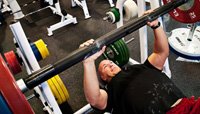Years ago, when I was a young rookie cop, I made a lot of arrests. One night I decided it was time to lock up this bad guy, so I moved in and grabbed his wrist. He immediately began backing up and struggling, then shook his arm violently in an effort to break free. Eventually I lost my grip and found myself in a foot chase. He was a young, wiry guy in sneakers and he was fast enough to lose me in the darkness behind a building.
This was the first time I'd had ahold of someone and he'd gotten away from me. I'll never forget that feeling of defeat. I had lost a struggle and a foot chase in the same incident. This guy should have been under arrest and behind bars, not roaming the streets. I'd have to track him down and attempt to arrest him again.
I was also determined that an escape like this wouldn't happen again.
Police Your Grip
I have long been a proponent of grip strength in law enforcement, and I've always preached that grip strength is the most functional strength you can build. Your grip is almost always involved in any real-world strength event.
Grip strength is crucial to many different aspects of law enforcement. Even if you're not interested in this kind of career, improving your grip can help you in any number of other careers, not to mentions sports and physical fitness. A rock climber, for example, isn't going to make it up a very large mountain without a strong grip. Grip training is critical for several reasons, many of which are safety-related.
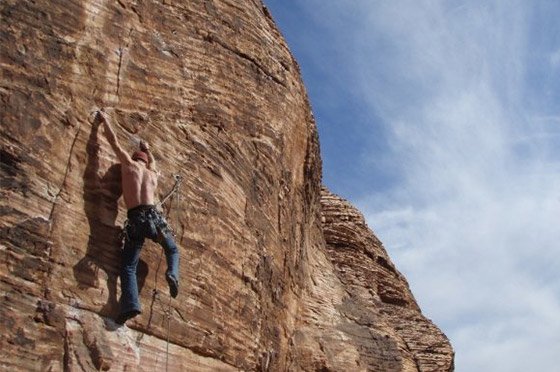
Shooting Accuracy
A super-strong grip isn't a necessity if you're target shooting purely for accuracy. But if you're tactical training or in a real-world shooting situation, your grip makes a huge difference. The ability to strongly grip a firearm, especially with your support hand, will decrease the recoil and keep the firearm on target. A weak grip causes the gun to jump and will require a new sight picture after each round. As your grip fatigues, the recoil may require you to reseat the weapon in your hand, or the gun may not even cycle properly and cause the firearm to malfunction.
Firearm Handling
Aside from actually shooting and putting rounds on target, grip strength may play an even more important role when handling a firearm. If your firearm malfunctions in the middle of a gun fight, you'll rely on the pinching power (thumb and index finger) of your support hand to pull that slide back and clear the jam. You may also need to rip a jammed magazine from the gun. Think about how difficult this would be if your hands were slippery from rain, sweat or blood.
Now consider how bad your day would be if you were injured and lost the use of one of your hands, or even lost a finger or two. As police officers, we practice one-arm firing drills for good reasons. History has shown us that a person involved in a gun fight will naturally zero in on the opponent's firearm. This means the rounds are targeting the handgun, and that's precisely where both hands are located. How important would the strength of your hands be under the worst of circumstances?
Firearm Retention
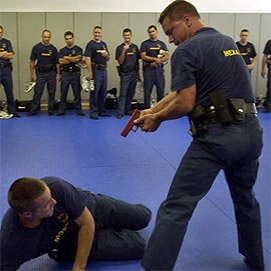
When I think of the importance of grip strength in law enforcement, the single most important thing that comes to mind is retaining possession of your firearm. There's an old expression in police work: "There's a least one gun at every call you go to ... it's yours."
As a result, handgun retention is taught at every police academy and should be practiced at all in-service training. I can't think of a worse scenario than an officer being disarmed and having his own firearm used against him or another officer. Even if the officer survives the incident, the psychological impact would be devastating.
I worked with an officer who found himself in a struggle for his own handgun. The officer was alone and his opponent was bigger and stronger. This officer was somehow able to maintain his grip on his firearm until back up arrived and shot the suspect. The officer told me he's sure he wouldn't be around to tell the story if he'd lost his grip on his firearm.
Self-Defense
We all learn self-defense in the academy. We quickly discover those techniques don't work as well as they did in a controlled environment. My advice to new officers who find themselves in a violent struggle has always been the same: If all else fails, grab a wrist and don't let go. If you can control the hands, 90 percent of the battle is won.
Specific Grip Training
The average resistance-training routine isn't sufficient to improve your functional grip strength. If all your training is done while holding onto a 1-inch bar, that will be the extent of your grip strength. The use of lifting straps just makes matters worse.
Your training should include the use of thick bars that simulate real-world objects like a human wrist, a firearm, or a fence pole. Thick bars are expensive and hard to find so I bring my Globe Gripz and Fat Gripz to the gym and switch them up every other workout.
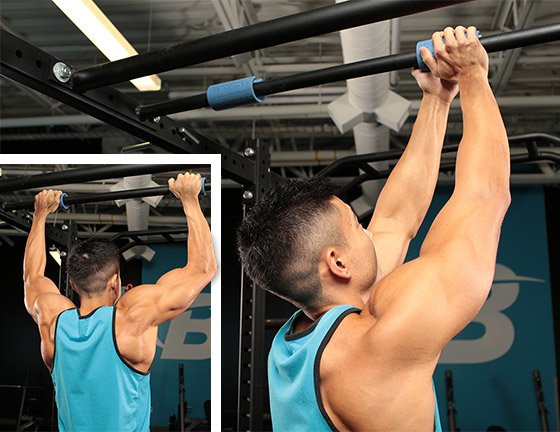
In law enforcement, we frequently find ourselves gripping nothing more than a piece of clothing. This total crushing or pinching strength can be improved by training with towels. For example, you could perform pull-ups while gripping a towel thrown over an overhead bar.
I also suggest training with some good old tried-and-true spring-loaded grippers. I've found the best grippers are the Captains of Crush, made by IronMind. They're offered in 11 different strength levels, so they're a great way to gauge your progress. These grippers can be used almost anywhere, and they'll greatly improve your grip and crushing strength.
Technology and Policing
Technology has changed the methods of almost every profession. Police work uses technological advances to deter, detect and solve crimes. We use technology to locate suspects and we have many less lethal options to take them down. Even with these advances, eventually someone needs to move in and put hands on a suspect.
I believe that when a cop grabs a bad guy, the criminal should realize he's been grabbed. Don't wait until your life—or someone else's—depends on a strong grip.
Recommended For You
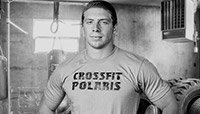
Be More Than Strong. Be Tough!
Toughness can't be categorized in a rep range or a fiber type. It's everything you do in the gym and more. You don't need to be tough—until, one day, you do. When that time comes, will you be ready?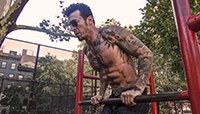
Strength Where It Counts: The 5 Best-Kept Grip Strength Secrets
Who cares how big your forearms are if they can't get the job done? Build strength you can use with these five grip-building techniques!